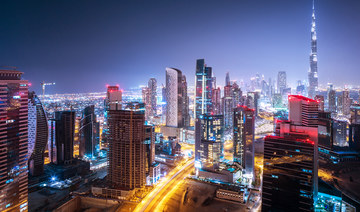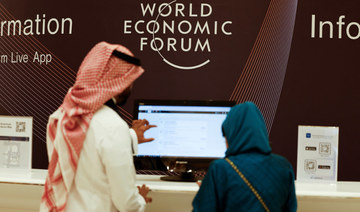WASHINGTON: Internet giants, including Alphabet’s Google and Facebook, are moving to compromise on several major policy issues as they adjust to an abrupt shift in the political winds in Washington.
Just last week, the US Senate took a big step toward advancing legislation that would partially strip away the Internet industry’s bedrock legal protection, a 1996 law that shields companies from liability for the activities of their users.
At the same time, Democratic senators are writing legislation that would create new disclosure rules for online political ads after Facebook this month revealed that suspected Russian trolls purchased more than $100,000 worth of divisive ads on its platform during the 2016 election cycle. The US Federal Election Commission is considering bringing in Facebook and other tech firms for a public hearing.
Unlike in Europe, where they have faced a bevy of new rules and billion-dollar fines, Internet giants have avoided virtually all types of government regulation in the US, even as their market power continues to grow. Amazon, for example, controls more than a third of US online commerce, while Google and Facebook combined account for more than 60 percent of the US digital ad market.
Internet firms have from their inception urged US politicians in both parties to treat their industry as a nascent sector in need of unique protections. These firms enjoyed an especially close relationship with the Democratic administration of former President Barack Obama, which saw several officials go to work for Google upon leaving the White House. But some Democrats, still bitter over Russia’s alleged meddling in the 2016 election, are now expressing alarm at the industry’s power. Virginia Senator Mark Warner, the vice chairman of the Senate Intelligence Committee, this month compared political ads on social media to the “wild, wild West” and is working on legislation to require more disclosure.
On the Republican side, President Donald Trump has been hostile to the tech industry in many of his public remarks. Google and Facebook have been repeatedly attacked from the right for alleged liberal bias and a globalist outlook.
Now, the Internet firms are backpedaling from earlier positions as they seek to avoid regulation, according to congressional aides, industry lobbyists and company sources.
“Tech is no longer the golden goose,” said one technology industry source, who spoke on condition of anonymity. “Maybe it’s a good thing we start behaving like a rational part of the economy.”
Silicon Valley lobbyists and congressional aides in both parties were quick to temper talk of a sweeping regulatory crackdown, in part because the government agencies that could move against the industry, notably the Federal Trade Commission, remain severely understaffed.
But the shift in tone is palpable.
On Thursday, Facebook Chief Executive Mark Zuckerberg said the company, for the first time, would make it possible for anyone to see details about political ads that run on Facebook, which, unlike television ads, do not fall under US law requiring disclosure of who pays for them. Requiring such transparency is one of the key provisions of the proposed legislation on online political ads.
The company also said it would turn over to congressional investigators political ads that it says were likely purchased by Russian entities during and after the 2016 US presidential election.
The moves marked an about-face for Zuckerberg, who after the November election said it was a “crazy idea” to think that activity on Facebook swayed the vote.
Facebook has also shifted its stance on proposed changes to the liability protections for Internet companies, formally known as Section 230 of the 1996 Communications Decency Act. The legislation, which is aimed at stopping online sex trafficking, has been fiercely opposed by companies that see it as a threat to openness and innovation on the Internet.
But after an emotional hearing last week featuring testimony from the mother of a murdered sex-trafficking victim — which followed two big tech companies, Oracle and Hewlett Packard Enterprise, breaking ranks with industry peers on the issue — Facebook and Google have opened the door to negotiation on the bill, according to congressional aides and industry sources.
In a statement, Erin Egan, Facebook’s vice president of US policy, said the company believed a legislative solution was possible to “address this terrible problem while ensuring that the Internet remains open and free and that responsible companies can continue to work to stop sex trafficking before it happens.”
The tech industry in recent years has neutralized other ideas percolating in the halls of Congress that it perceived as threatening, including calls to weaken encryption and demands that social media companies report “terrorist” activity to the government.
But the effort to amend Section 230 is seen as different. The fast progress of legislation, introduced in August, has alarmed lobbyists and company representatives who initially predicted it would not go far in an otherwise gridlocked Congress.
The bill comes after years of law enforcement lobbying for a crackdown on the online classified site backpage.com, which is used for sex advertising. The measure would make it easier for states and sex trafficking victims to sue social media networks, advertisers and others who fail to keep exploitative material off their platforms.
Republican Sen. Rob Portman of Ohio, the lead architect of the Section 230 legislation, said in an interview with Reuters that he was confident his measure would become law this congressional term, with or without Silicon Valley’s cooperation.
The bill has attracted bipartisan support from nearly a third of the Senate; a companion measure has similar backing in the House of Representatives. Portman said he had met with Trump’s daughter and adviser, Ivanka Trump, who expressed strong support.
“Frankly, I am disappointed (that) more in the technology industry are not joining us on this effort,” Portman said. “It is in their interest to be supportive of a solution on this problem.”
— REUTERS
Internet giants, once above the fray, on the defensive in Washington
Internet giants, once above the fray, on the defensive in Washington

Dubai Real Estate Brokers Program attracts 25 strategic partnerships
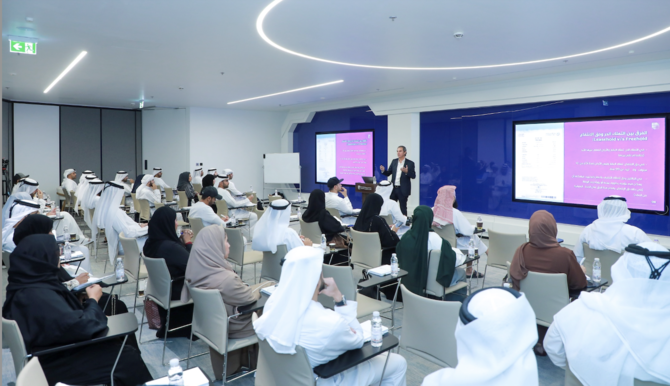
RIYADH: Dubai’s property market is set to grow, with the Real Estate Brokers Program securing 25 partnerships with brokerage companies and developers in the private sector.
According to a press statement, the first phase of the program, launched in mid-March and headed by the Dubai Land Department, also received over 1,000 registrations from Emirati citizens.
Dubai Real Estate Brokers Program aims to increase the proportion of citizen brokers from 5 percent to 15 percent over the next three years to enhance the participation of young citizens in the Emirate’s developmental initiatives across various key sectors.
“This reflects the early positive impact of the program, showcasing citizens’ aspirations and eagerness to engage as real estate brokers and acknowledging the pivotal role of Dubai’s real estate sector locally and globally,” said Marwan bin Ghalita, acting director general of Dubai Land Department.
The initiative also aligns with Dubai Social Agenda 33, which seeks to triple the number of Emiratis working in the private sector.
Ghalita added that the program will help young talents in the nation enhance their productivity, therefore contributing to Dubai’s economic growth.
“Dubai consistently offers outstanding examples of collaboration and synergy between the private and public sectors,” said Ghalita.
He added: “With the program’s enrollment exceeding 1,000 citizens and real estate companies continuing to join the strategic alliance within a short period, we are diligently working toward achieving all the ambitious goals of the Dubai Real Estate Brokers Programme. In particular, Emirati real estate brokers will increase from 5 percent to 15 percent over the next three years.”
The program also encompasses additional initiatives, including Emirati real estate broker licensing, encouraging property developers to allocate a portion of their sales to local agents, and empowering citizens in the property sector.
Under the partnership with the private sector, citizen participants will receive various support packages to enhance the competitive edge of UAE people and enable them to take up roles in the real estate sector.
The press statement added that efforts would also be made to allocate 10 percent to 15 percent of the development company’s sales to be marketed by Emirati real estate brokers, therefore contributing to the empowerment of national citizens by offering them employment opportunities in the property market.
Dubai ruler approves new $35bn airport terminal
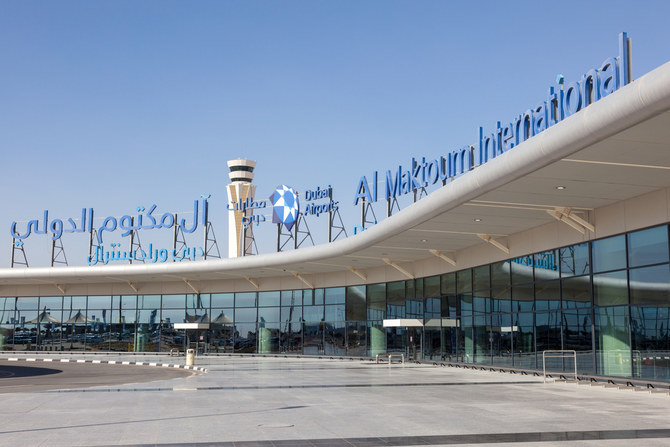
CAIRO: Dubai’s ruler Sheikh Mohammed bin Rashid Al-Maktoum approved a new passenger terminal in Al Maktoum International airport worth 128 billion dirhams ($34.85 billion), he said on Sunday in a post on X.
The Al Maktoum International Airport will be the largest in the world with a capacity of up to 260 million passengers, and five times the size of Dubai International Airport, he added, saying that all operations at Dubai airport would be transferred to Al Maktoum in the coming years.
The Al Maktoum airport will also include 400 terminal gates and five runways, he said.
The airport will be the new home of flagship carrier Emirates and its sister low-cost airline Flydubai along with all airline partners connecting the world to and from Dubai, Dubai state-owned airline Emirates chairman Sheikh Ahmed bin Saeed Al-Maktoum said.
The move “further solidifies Dubai’s position as a leading aviation hub on the world stage,” the CEO of Dubai Airports, Paul Griffiths, was quoted as saying by the Dubai Media Office.
Oil Updates – prices fall 1% on Israel-Hamas ceasefire talks, US inflation concerns

BEIJING/NEW DELHI: Oil prices were down 1 percent on Monday, erasing gains from Friday as Israel-Hamas peace talks in Cairo eased fears of a wider conflict in the Middle East and US inflation data further dimmed the prospects of interest rate cuts anytime soon, according to Reuters.
Brent crude futures fell by as much as 98 cents, or 1.09 percent, to $88.52 a barrel by 9:44 a.m. Saudi time. West Texas Intermediate futures were down 83 cents, or 0.99 percent, at $83.02 a barrel.
Stepped-up efforts to mediate a ceasefire between Israel and Hamas moderated geopolitical tensions and contributed to the weak opening on Monday, IG market analyst Tony Sycamore said. A Hamas delegation will visit Cairo on Monday for peace talks, a Hamas official told Reuters.
Israel’s foreign minister said on Saturday a planned incursion into Rafah, where more than one million displaced Palestinians are sheltering, could be put off in the event of a deal that involves the release of Israeli hostages.
A White House spokesperson said Israel had agreed to listen to US concerns about the humanitarian effects of the potential invasion.
Markets are also on watch for the US Federal Reserve’s May 1 policy review.
“Also playing a part are some nerves ahead of this week’s Federal Open Market Committee meeting which is expected to come with a more hawkish tone,” Sycamore said.
US inflation rose 2.7 percent in the 12 months through March, data on Friday showed, above the Fed’s target of 2 percent. Lower inflation would have increased the likelihood of interest rate cuts, which would stimulate economic growth and oil demand.
“The sticky US inflation sparks concerns for ‘higher-for-longer’ interest rates,” leading to a stronger US dollar and putting pressure on commodity prices, independent market analyst Tina Teng said.
The dollar strengthened on the prospect of higher-for-longer interest rates. A stronger dollar makes oil more expensive for those holding other currencies.
Further weighing on the outlook for oil demand, China’s industrial profit growth slowed down in March, official data showed on Saturday, in the latest sign of frail domestic demand in the world’s second largest economy.
Cumulative profits of China’s industrial firms rose 4.3 percent to 1.5 trillion yuan ($207 billion) in the first quarter from a year earlier, compared to a 10.2 percent rise in the first two months.
But oil prices could swing higher again if US inventory data and China’s PMI index show improvements this week, Teng said.
Brent had settled up 49 cents and WTI up 28 cents on Friday on concerns about disruptions to supply from events in the Middle East.
The market brushed aside potential supply disruptions stemming from Ukranian drone strikes on the Ilsky and Slavyansk oil refineries in Russia’s Krasnodar region over the weekend. The Slavyansk refinery had to suspend some operations after the attack, a plant executive said.
Algeria asked by Europe to boost gas supply
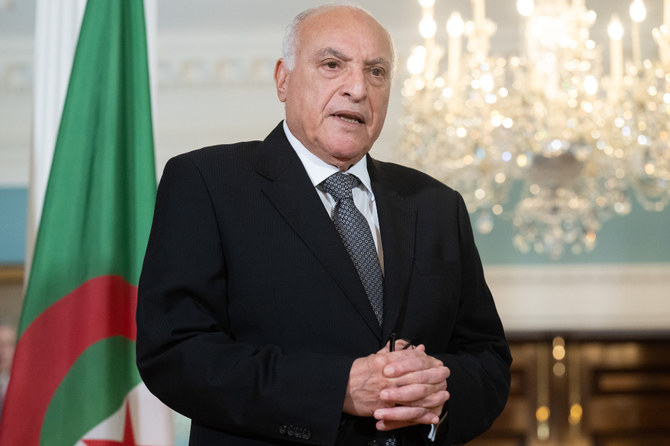
- Regional, global conflict affecting energy industry, says Algeria FM
- Key constraints are Israel war on Palestine, Ukraine-Russia battle
RIYADH: Algeria has been asked by its partners in Europe to increase gas supply because regional and global conflicts have affected the industry, the country’s foreign minister said on Sunday.
Speaking at a special World Economic Forum meeting in Riyadh, Ahmed Attaf said his country has established a “very complex network of cooperation” with its partners in the region.
“We are a Mediterranean country. We are a gas-producing country. We are asked by our partners in Europe more and more to deliver additional quantities of gas,” he said.
Speaking about how the global environment has changed over the past two-and-a-half years, Attaf said that conflict has affected the energy market, which requires more effective intervention from the UN and its Security Council.
“We have, of course, the conflict in Ukraine that is impacting our region. We have the Palestinian-Israeli conflict that is also impacting our region, and we have the Sahel region. And we are also feeling the impact of the deteriorating situation in this region on the Euro-Mediterranean area,” he added.
He said the “sophisticated” energy cooperation did not come at “the cost of our commitments to alleviating the effects on our environment.”
Saudi Arabia committed to preserving environment, water resources, minister tells WEF
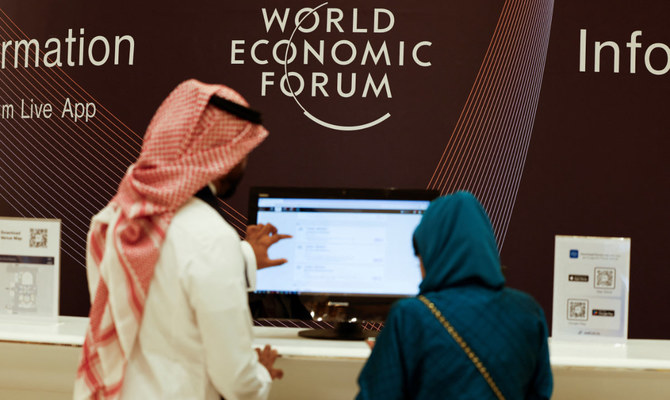
- Nation providing incentives for private sector to become more engaged, Abdulrahman Al-Fadley says
DUBAI: Saudi Arabia has detailed plans for the protection of its lands and environmental resources, the Minister of Environment, Water and Agriculture said on Sunday.
Speaking at the World Economic Forum in Riyadh, Abdulrahman Al-Fadley said: “We have devised our plans based on the preservation of our environment and the management of our water resources. The Kingdom is also providing incentives for the private sector to become more engaged and more responsible toward the environment.”
With 40 percent of lands around the world degraded and further degrading at an alarming rate, critical action is needed as the UN Convention to Combat Desertification COP16 is set to take place in Riyadh in December.
Al-Fadley said Saudi Arabia had preserved millions of hectares of land and set up programs for cloud seeding and increasing the number of dams in the country.
“This will not only be beneficial to the Kingdom but for the whole region,” he said. “With us hosting COP16 we are hoping to give the meeting the importance it commands. We don’t want matters to go back to the status quo after COP16 ends.”
Tariq Al-Olaimy, a member of the Global Shapers Community Foundation Board at the WEF, commended King Salman for his land restoration efforts.
“When you put nature first, you are equally putting people first,” he said. “Nature is our greatest collaborator … There is no successful growth story without successful land restoration and this starts inwardly, through our religion, community, values and moral clarity.”
Ibrahim Thiaw, secretary of the UNCCD, warned of global repercussions if the world did not pay heed to environmental safekeeping.
“Entire ecosystems are being destroyed through actions and inactions,” he said. “There has been a 29 percent increase in droughts in the past few years and that is affecting 1.8 billion people around the world. For poor nations that is disastrous and carries a large death toll of animals, people and agriculture. We have to be more proactive and not just emergency-ready. We must attempt to avoid emergencies.”
Thiaw said the Panama Canal’s functionality had been reduced by 12 percent, which was causing a problem for supplies.
“Demand is increasing while resources are shrinking,” he said. “As humanity we have been looking at resources as if they are unlimited. We have not been managing them. Companies need to reset their relationship with nature and we need to focus on land restoration to keep going.”
Naoki Ishii, director of the Center for Global Commons, had similar concerns.
“We are on a collision course,” he said. “The only solution is to modify our economic system. COP16 must be transformative for all of us. We need the political momentum to implement positive changes.
“If we are able to push those efforts, economically and ideally speaking, that will be a game changer.”


